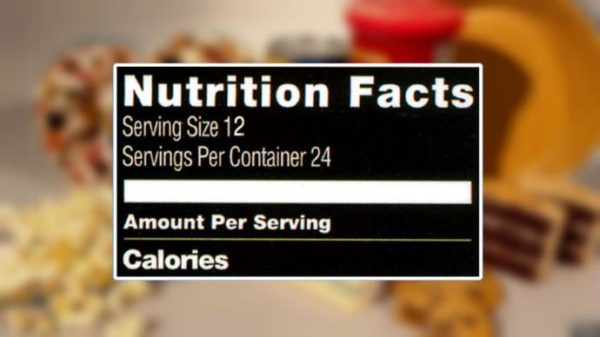
EAU CLAIRE, Wis. (WEAU) — There should be more information about artificial sweeteners, on food labels. That is according to the latest policy statement from the American Academy of Pediatrics.

Experts say there needs to be more research about how artificial sweeteners may possibly impact children’s long-term health.
Previous research has shown that more than a quarter of children consume artificial sweeteners, and parents may not be aware of it.
So now, they are calling for the amount of no- or low-calories sweeteners be listed on product labels, instead of listing them among ingredients.
WEAU Health Correspondent Dr. Alicia Arnold sat down with Tyler Mickelson to discuss. Their Q & A can be found below.
What’s the concern with artificial sweeteners and kids?
Dr. Alicia Arnold, “Kids’ bodies are still developing and growing, and we don’t have enough research to tell us what potential effects some of these sweeteners could have on their health, especially given that they are becoming so much more prevalent in so many of the foods that we eat.”
What are some of the long-term effects that doctors are concerned about?
Dr. Alicia Arnold, “Some research indicates that consuming these sweeteners may increase your desire for sweets in general, which could lead to people making less healthy food choices. There is also some question of whether consuming these sweeteners may affect other factors in your body such as blood sugar levels.”
What are some of the challenges that parents face about artificial sweeteners?
Dr. Alicia Arnold, “The majority of parents try to choose lower sugar products for their kids, but many don’t know that the sweet taste in these products is from the addition of artificial sweeteners. It can be tough for parents to know exactly *how much* of these artificial sweeteners are in foods they feed their kids because it is not required to be labeled. So kids may be eating much larger amounts of these artificial sweeteners than parents realize.”
What sort of foods might we find them in?
Dr. Alicia Arnold, “Data suggests that these sweeteners are increasingly present in many of our foods, often in products labeled as “light”, “diet” or “reduced sugar”. But they also may be found in products where you may not expect it like bread and other baked goods and even drinking water.”
Is there any amount that might be okay?
Dr. Alicia Arnold, “We don’t have any long-term studies on the effect of artificial sweeteners on children, so there’s still a lot we don’t know. Some people support the use of artificial sweeteners as long as it is within acceptable dietary intake levels, but it’s hard to know how much you are consuming when the amounts aren’t required to be listed on packaging. That is a reason why the American Academy of Pediatrics is making this recommendation to list the amounts of artificial sweeteners on food labels.”